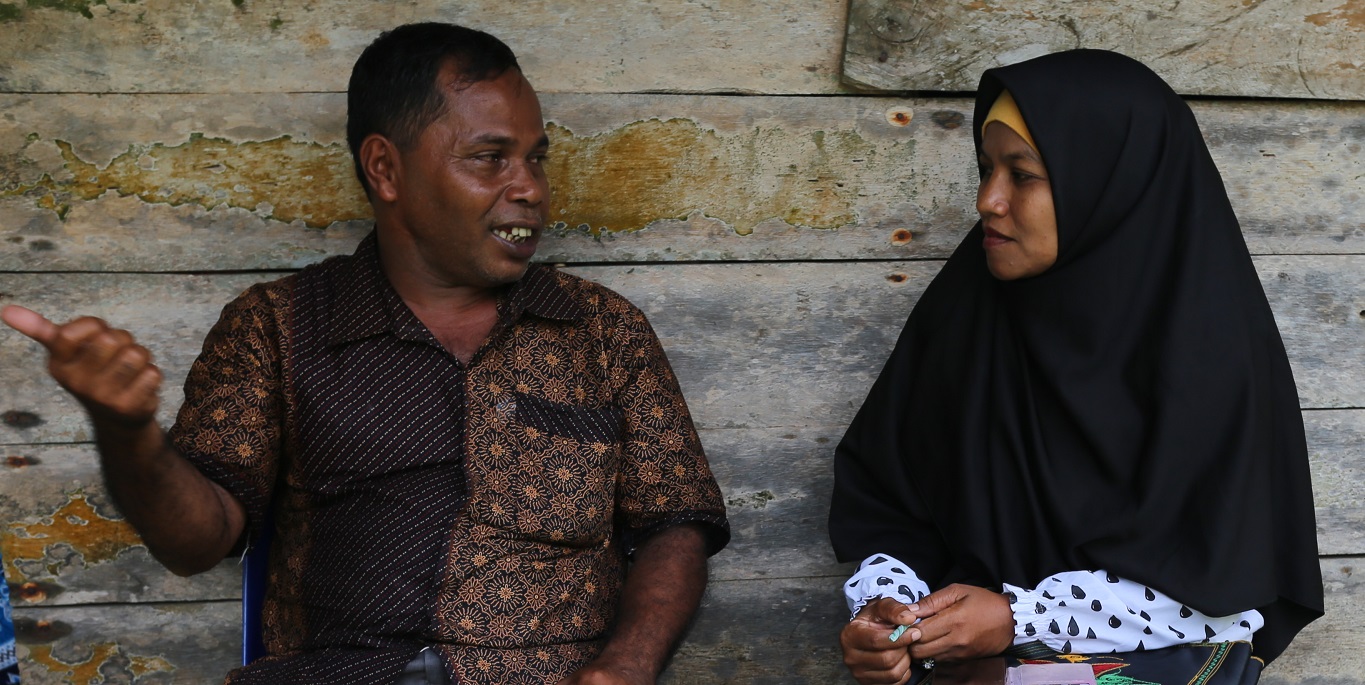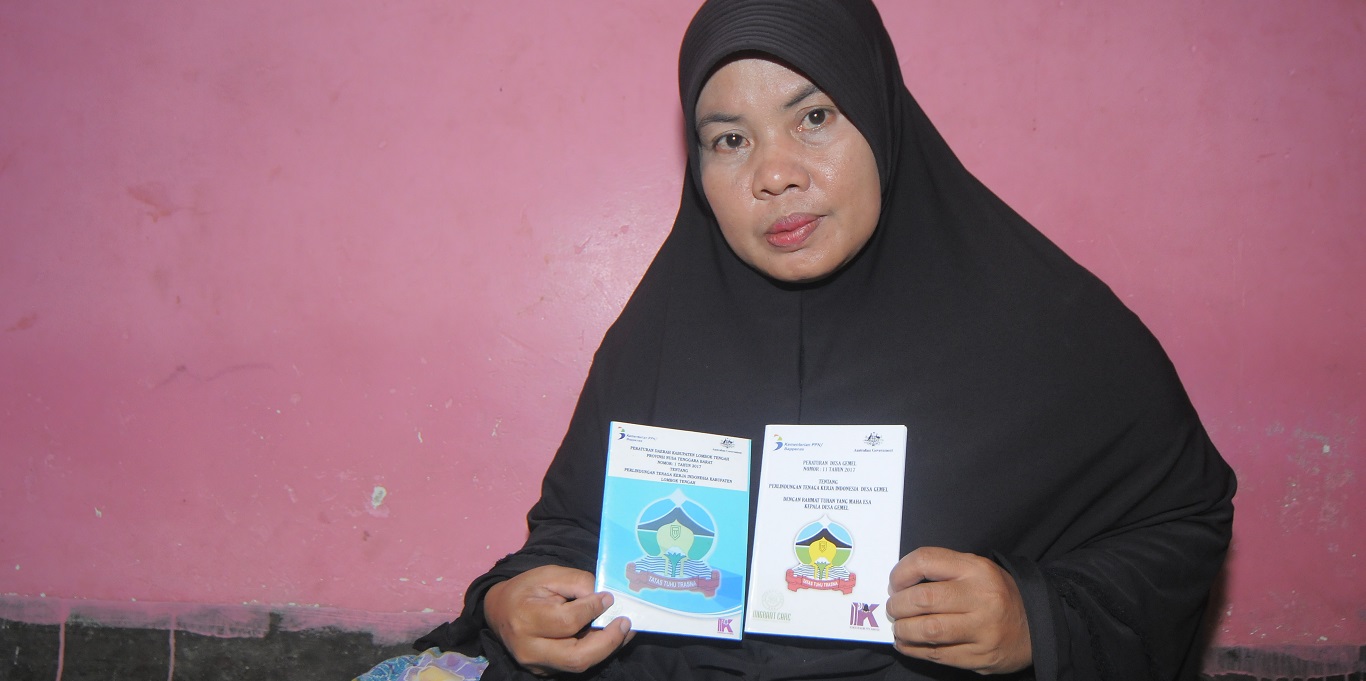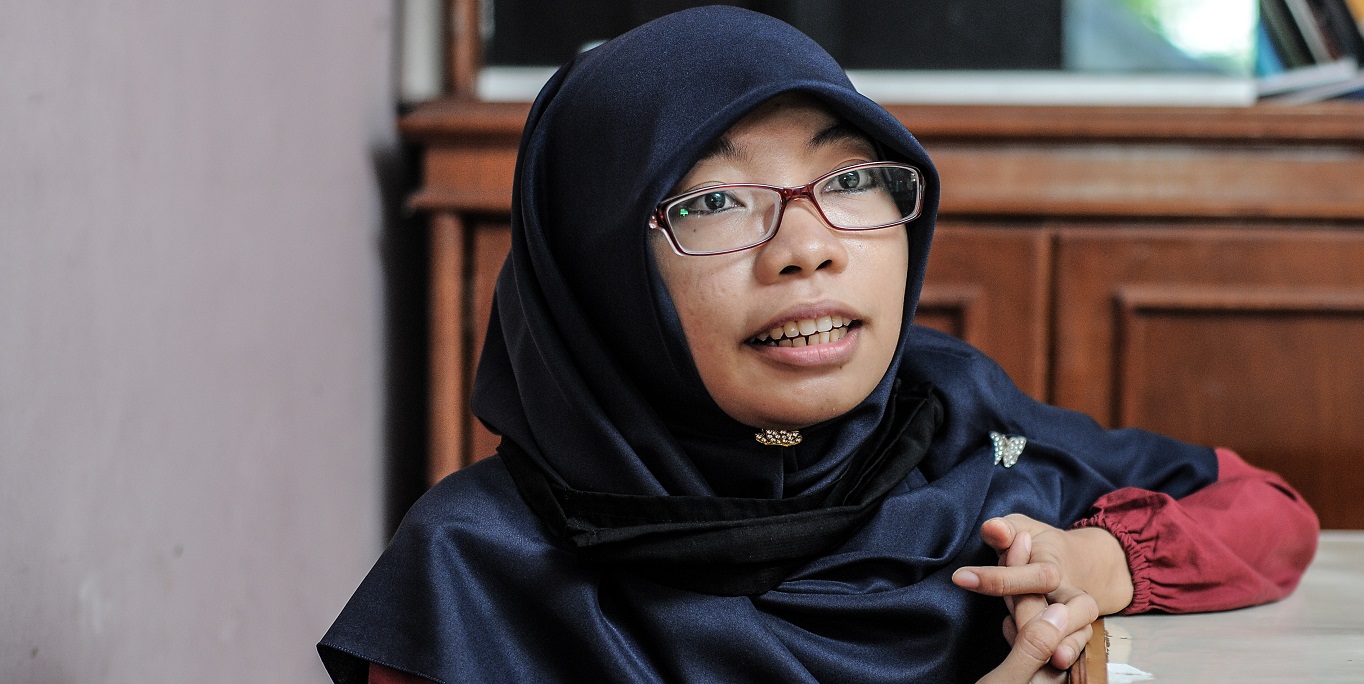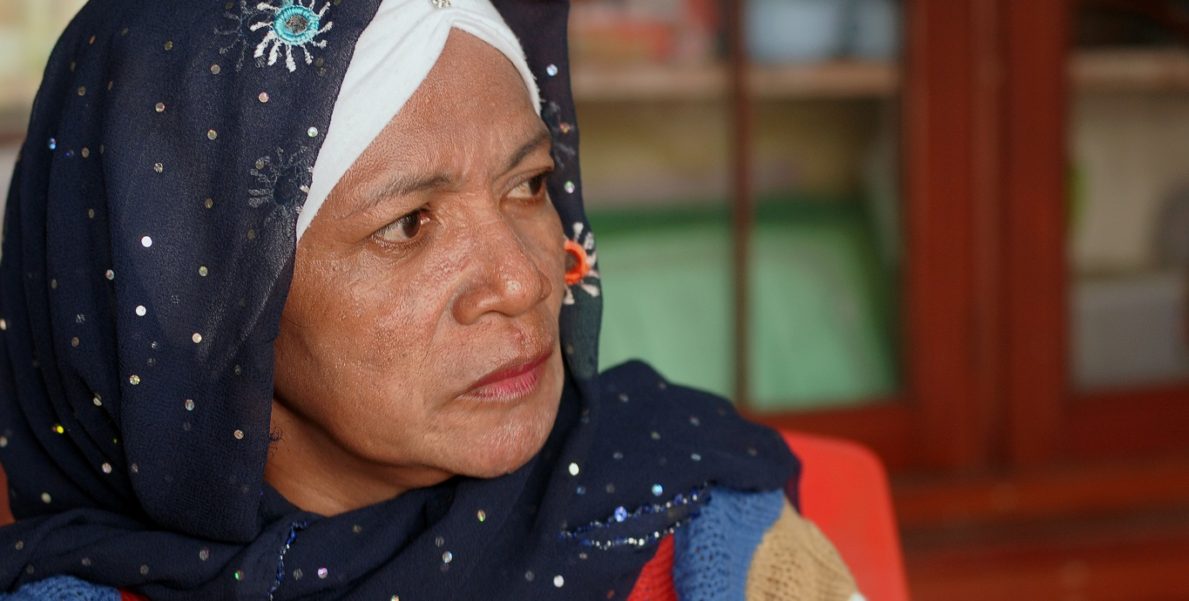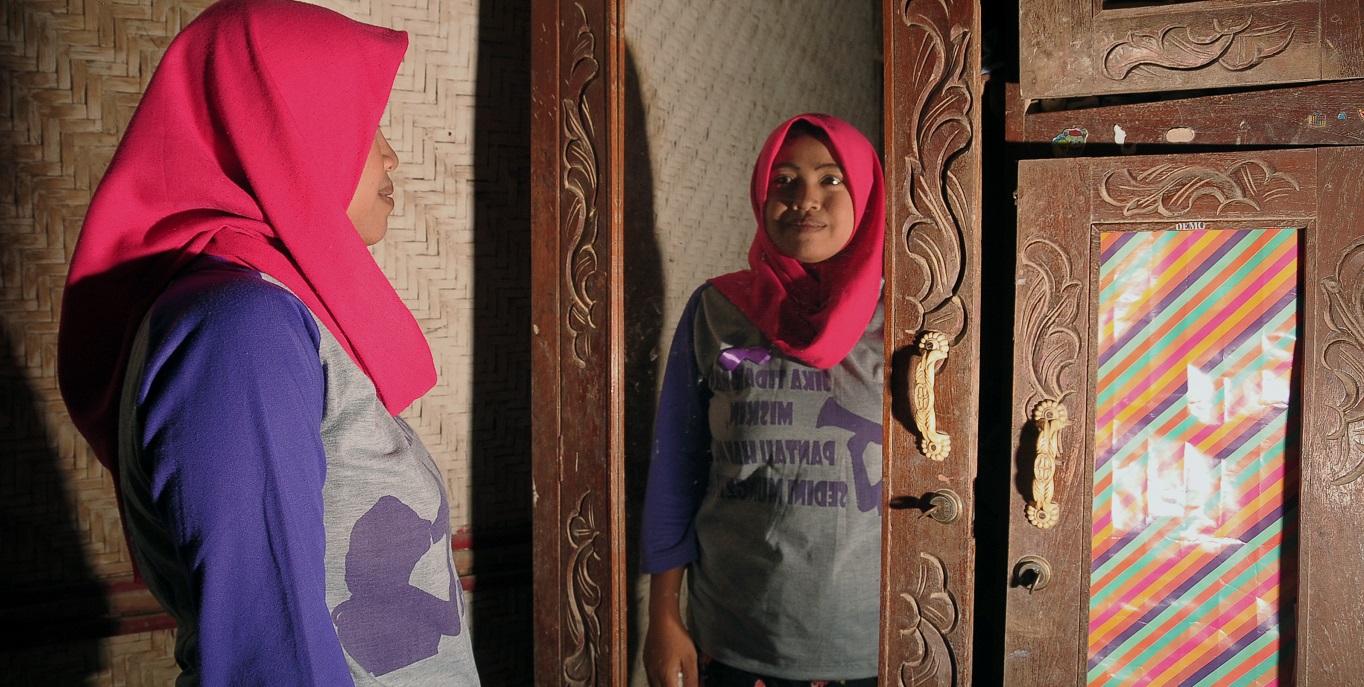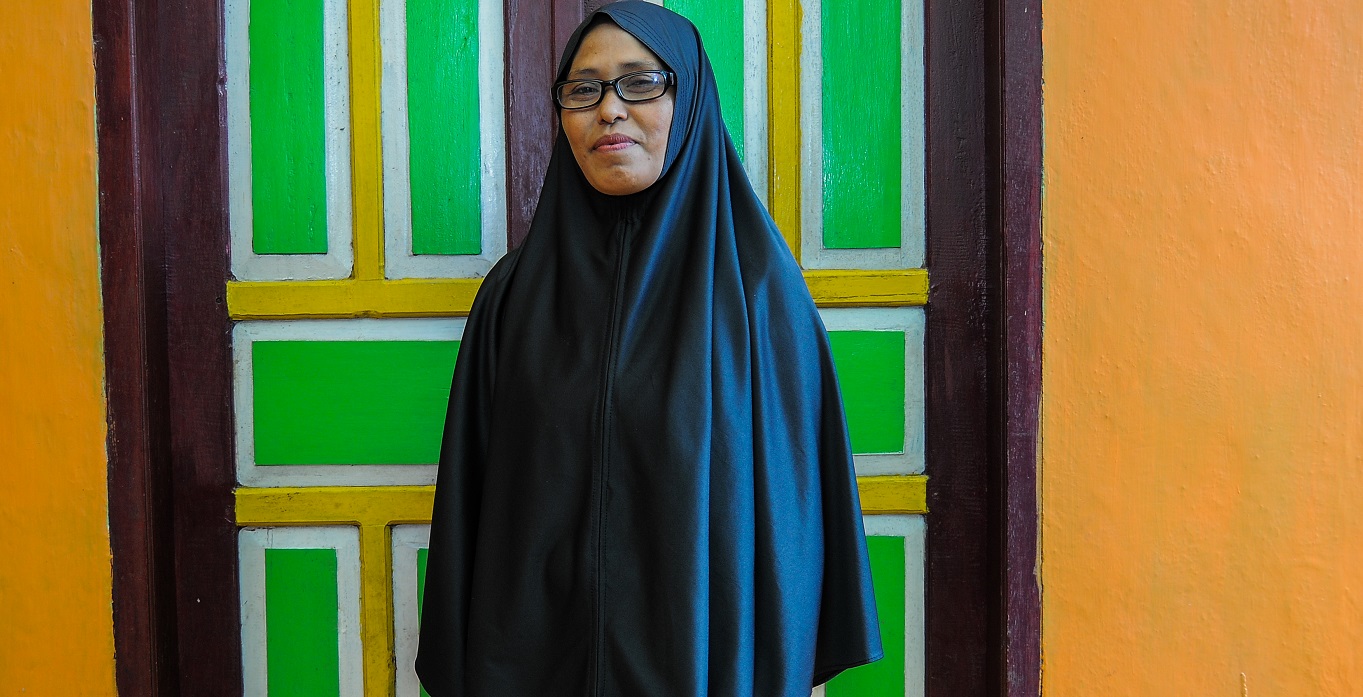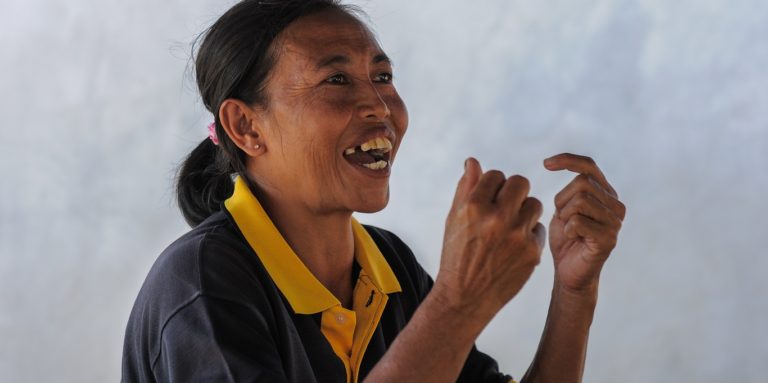Stories
Men Playing a Role in Resolving Cases of Violence against Women in Aceh
27 May 2019Penulis: admin
As civil servants, village heads do not only have the responsibility to take care of administrative matters, they must also protect their citizens and keep them from harm. It is not an easy job at the best of times, and it’s made even more difficult by the widely held view that domestic violence is a personal, family matter.
In Aceh, Hasan and Hermansyah are two village heads who are breaking down this misconception by dealing with domestic violence in the public eye. They are exploring alternative solutions to resolving cases of violence against women. In domestic violence cases, women are often revictimized through the stigmatization and punishment they face in the community.
“There are many problems regarding marrying the perpetrator to the rape victim,” said Hasan, who is the head of the Ulee Glee Village in North Aceh.
Sometimes rape victims are paraded around the village in shame and made to bathe at the religious boarding school (pesantren) in front of the public. Public humiliation is considered a customary way to resolve the case; however, it is an approach that bothers Hasan.
“Acts like that are inhumane, and are actually inflicting multiple forms of violence against the victim,” he said.
One case convinced Hasan that these kinds of customary approaches to resolving rape cases are harmful to victims of violence. The case in question involved an incestual rape where an older brother raped his own little sister. Hasan assisted the victim in pursuing justice by taking the girl and her family to the police station to report the case.
In the process of assisting the victim Hasan met with staff from the North Aceh Integrated Service Center For the Empowerment of Women and Children (P2TP2A) and representatives of The Association of Indonesian Women for Justice – Legal Aid Institute (LBH APIK) in Aceh. LBH APIK Aceh is a part of the Service Provider Forum (FPL), a MAMPU partner for the theme of reducing violence against women.
Hasan began to coordinate and consult with the village authorities about the cases that were occurring in his village. Together they categorized the types of cases that could be resolved through customary means and those that must be resolved through legal channels. At the same time they began to raise awareness in the community that there are types of cases that must be handled by law enforcement.
In Tumpok Teungoh, a village in the Banda Sakti District of Lhokseumawe city, Hermansyah has now been village head for three terms. He and the village authorities are overwhelmed with cases of domestic violence. These cases occur in almost every hamlet in Tumpok Teungoh and take many forms, including economic violence, where men economically neglect their spouses and children; physical violence, and psychological violence.
“Complaints from people in the community come at all times of the day, sometimes even in the middle of the night people knock on the door of my house to report violence,” told Hermansyah.
In the process of resolving most of these cases, mediation sessions are held between one to six times at the Village Office.
Some of the domestic violence cases are handled directly by the police because the victim reports to the police instead of the village authorities. “Sometimes we are suddenly contacted and told that there is a resident of our village that is involved in legal proceedings,” he explained.
In 2016, Hermansyah met with LBH APIK when the organization was assisting one of the residents of his village. Representatives of LBH APIK have also begun to attend the mediations that take place if women in the village experience domestic violence.
LBH APIK often gives legal information and advice to the village residents and authorities. This includes information regarding child custody rights, how to initiate divorce proceedings, and the division of property through legal channels.
LBH APIK’s involvement is a relief for Hermansyah who no longer has to deal with the domestic violence cases alone. “Now, I always talk about the importance of seeking a legal resolution to domestic violence cases at the village level,” concluded Hermansyah.



